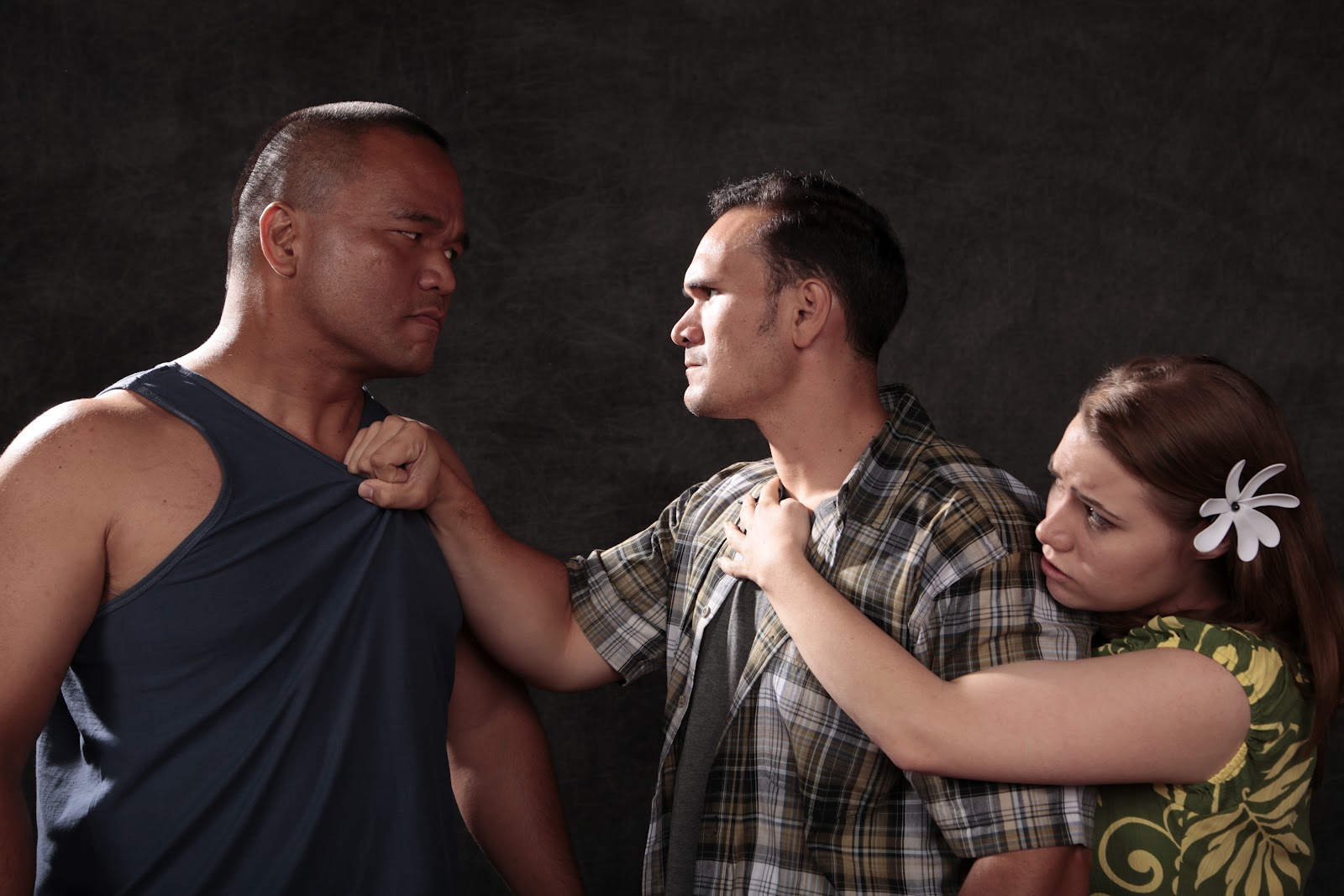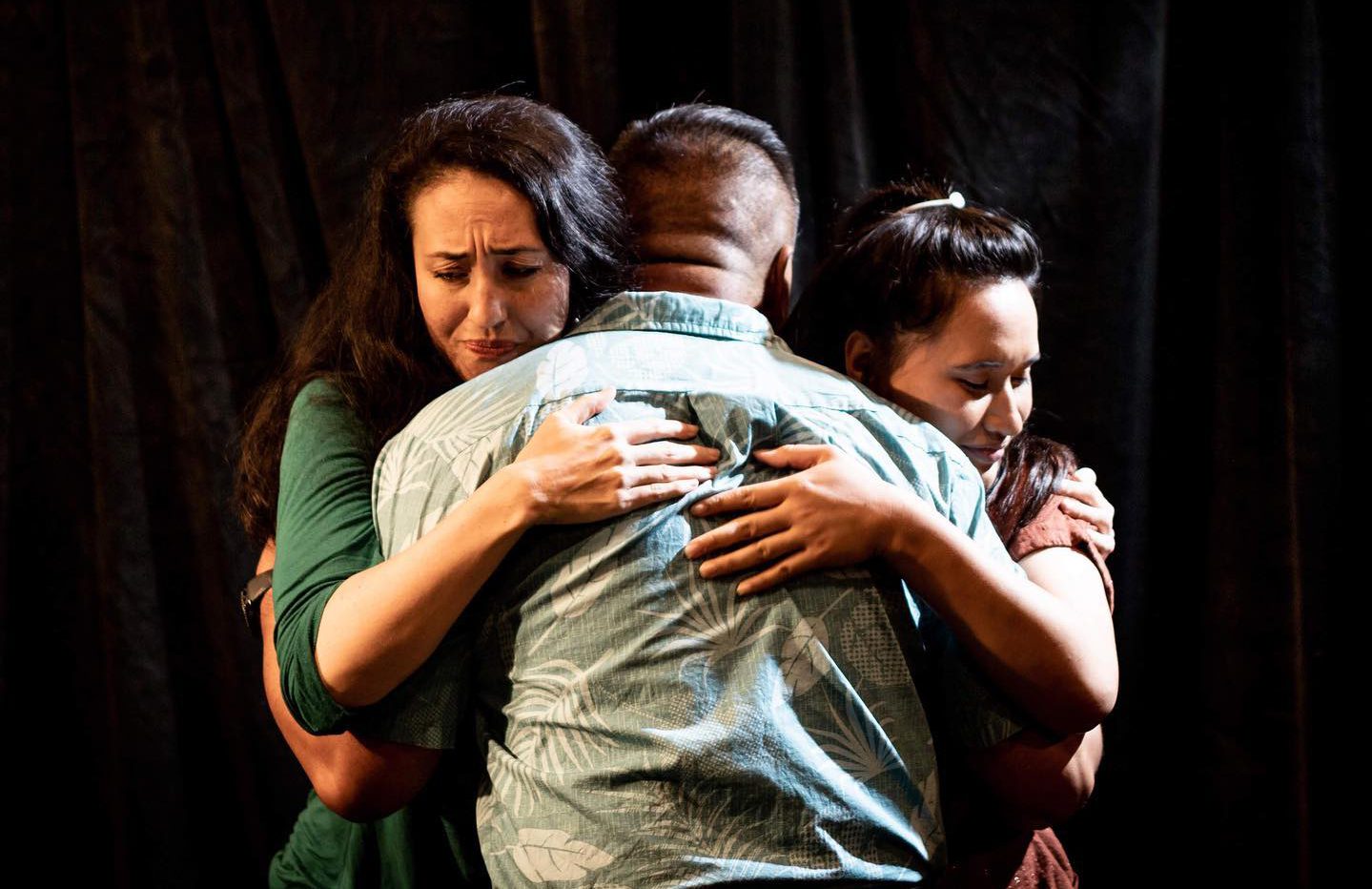

Available for the first time, Alani Apio’s landmark trilogy, together in one volume.
IN A STORY THAT SPANS THREE GENERATIONS, Kāmau: The Trilogy delves into the lives of a Kanaka ‘Ōiwi family who loses their long-time family home when the land it sits on is sold to a developer. Alika shoulders the burden of taking care of his family financially. Michael fights to keep their ancestral traditions alive. Stevie grapples with who she is and who she wants to be. Haunted by voices from their past, each of them struggles to understand the choices others have made and to find peace within themselves.
Powerful and moving, Kāmau: The Trilogy explores the complex issues Kānaka ‘Ōiwi face in modern Hawai‘i and what one family does to kāmau—to carry on.
Illustrations by Michael Harada
Softcover. 2024. 7×10″. 236 pp.
978-0-87336-732-5
$20.00

THE TRILOGY
![Kāmau-Kāmau-02-vector [Recovered]](https://kamehamehapublishing.org/wp-content/uploads/sites/42/2024/05/Kāmau-Kāmau-02-vector-Recovered-300x231.png)

Exploring the concepts of aloha and kuleana (responsibility), Kāmau follows three cousins who were raised in their family’s beach-side home and taught that they must care for the land to ensure the survival of their ʻohana. When their ancestral homestead is sold to build a hotel, the cousins’ perspectives on kuleana put them at odds. Michael will not abandon his responsibility to the ʻāina, and refuses to leave. Left to provide for the family alone, Alika must choose between joining Michael’s battle against the resort — at the expense of his niece, Stevie, and her mother, Lisa — or continuing to work for the very corporation that has displaced them.


Part two of the Kāmau trilogy picks up ten years later as Michael is released from prison and returns immediately to occupy the beach that he was evicted from. He has become a member of a sovereignty group (‘Ai Pōhaku) that has embraced his quest to retake his ancestral homestead. Alika is now the resort’s manager: offering cultural tours and classes, providing hundreds of jobs for Native Hawaiians. The cousins’ world views once again collide, and they are used as pawns against each other as larger forces vie for control of the place that was once their home.


In this explosive finale to the Kāmau trilogy, past and present collide as Stevie returns home from college and uncovers hidden truths about her family. Devastated, she begins to experience and unravel the inter-generational trauma that haunts them all. Her struggle to release old ghosts and claim her place—and her kuleana— will determine whether she and her ʻohana survive intact, or at all.
THE TRILOGY
![Kāmau-Kāmau-02-vector [Recovered]](https://kamehamehapublishing.org/wp-content/uploads/sites/42/2024/05/Kāmau-Kāmau-02-vector-Recovered-300x231.png)

Exploring the concepts of aloha and kuleana (responsibility), Kāmau follows three cousins who were raised in their family’s beach-side home and taught that they must care for the land to ensure the survival of their ʻohana. When their ancestral homestead is sold to build a hotel, the cousins’ perspectives on kuleana put them at odds. Michael will not abandon his responsibility to the ʻāina, and refuses to leave. Left to provide for the family alone, Alika must choose between joining Michael’s battle against the resort — at the expense of his niece, Stevie, and her mother, Lisa — or continuing to work for the very corporation that has displaced them.


Part two of the Kāmau trilogy picks up ten years later as Michael is released from prison and returns immediately to occupy the beach that he was evicted from. He has become a member of a sovereignty group (‘Ai Pōhaku) that has embraced his quest to retake his ancestral homestead. Alika is now the resort’s manager: offering cultural tours and classes, providing hundreds of jobs for Native Hawaiians. The cousins’ world views once again collide, and they are used as pawns against each other as larger forces vie for control of the place that was once their home.


In this explosive finale to the Kāmau trilogy, past and present collide as Stevie returns home from college and uncovers hidden truths about her family. Devastated, she begins to experience and unravel the inter-generational trauma that haunts them all. Her struggle to release old ghosts and claim her place—and her kuleana— will determine whether she and her ʻohana survive intact, or at all.



Images from Kāmau Aʻe (2012) and Ua Pau (2019). Courtesy of Kumu Kahua Theatre.
Images from Kāmau Aʻe (2012) and Ua Pau (2019). Courtesy of Kumu Kahua Theatre.

“The importance of Kāmau is that we exposed publicly the trauma of being Kanaka in a modern setting, in a way that hadn’t been exposed before.”
– Alani Apio
“Apio’s work is ‘not only contemporary, it’s unapologetic about its form, about its style.’ All these elements combined were ‘a movement forward, for not just Hawaiian drama, but for drama in general, for the writing of it here in Hawai‘i.’”
–Harry Wong III, Director

“The importance of Kāmau is that we exposed publicly the trauma of being Kanaka in a modern setting, in a way that hadn’t been exposed before.”
– Alani Apio
“Apio’s work is ‘not only contemporary, it’s unapologetic about its form, about its style.’ All these elements combined were ‘a movement forward, for not just Hawaiian drama, but for drama in general, for the writing of it here in Hawai‘i.’”
–Harry Wong III, Director
ABOUT THE AUTHOR
Alani Apio was born in 1965 in Honolulu and raised in Pu‘uloa, a.k.a. ‘Ewa Beach. He attended ‘Ewa Beach Elementary, and graduated from the Kamehameha Schools. He received a bachelor of arts degree in theatre from the University of Hawai‘i at Mānoa in 1988. Aside from spending summers in southern California with his maternal grandparents during his childhood years, he’s lived his entire life on O‘ahu.
